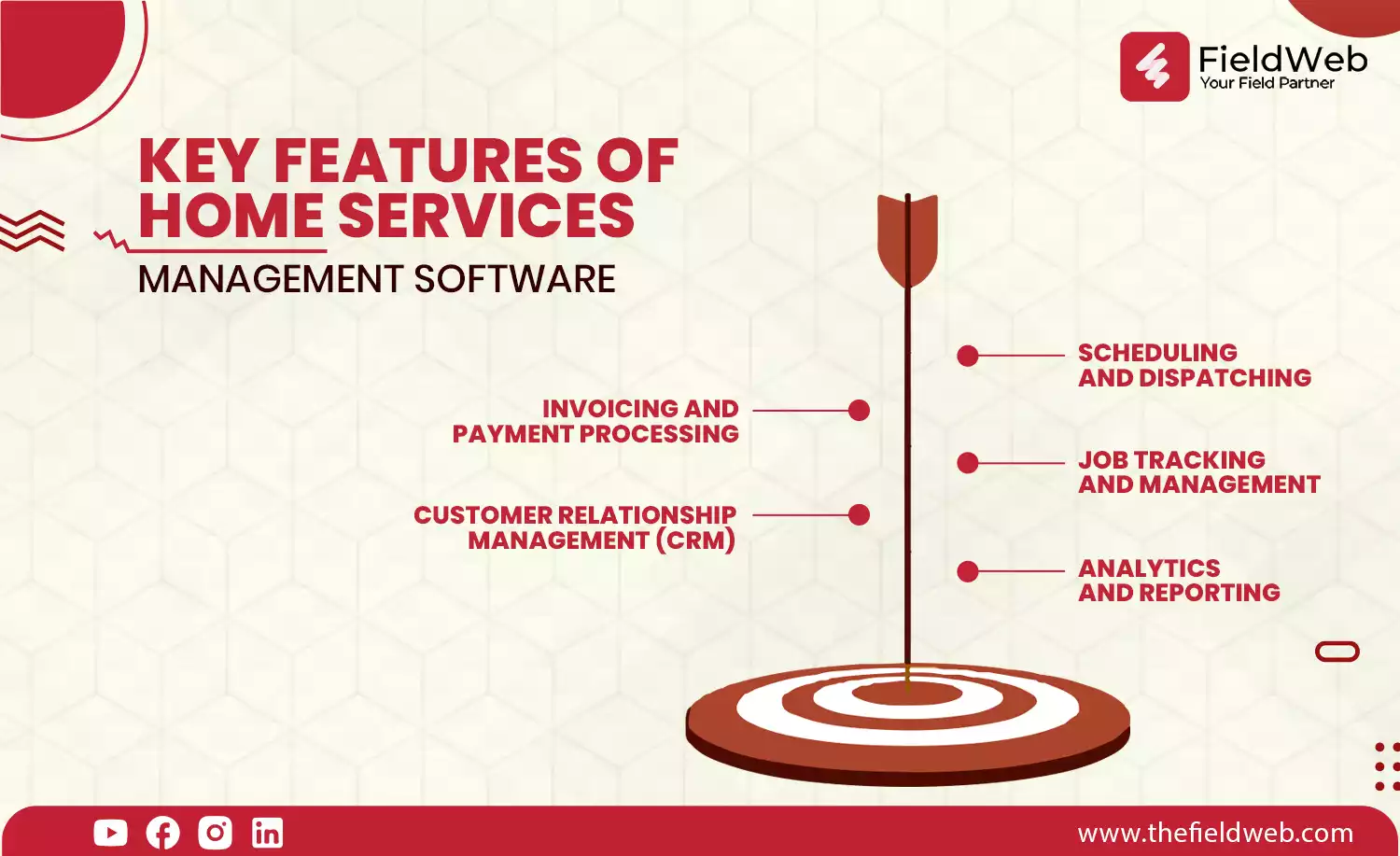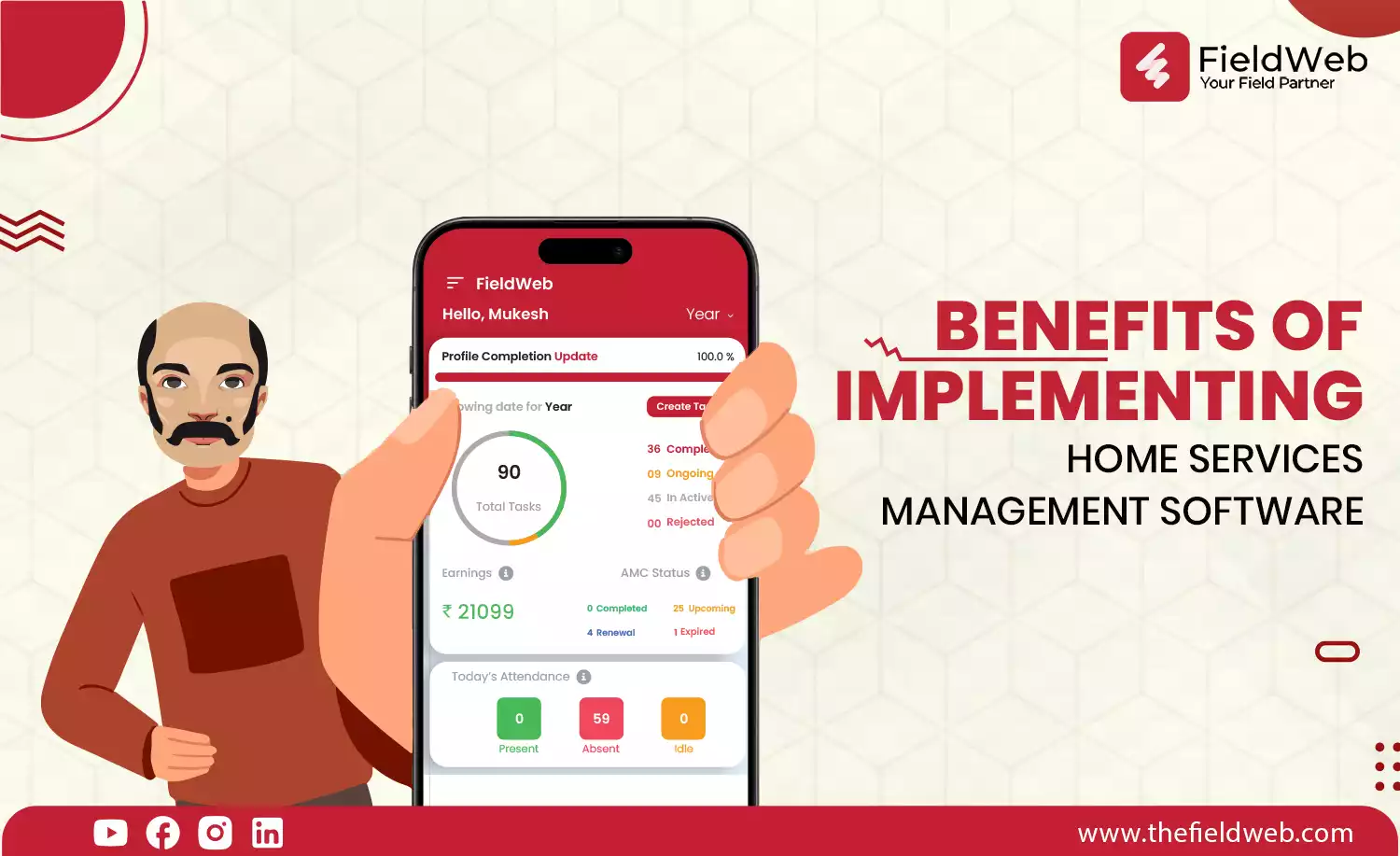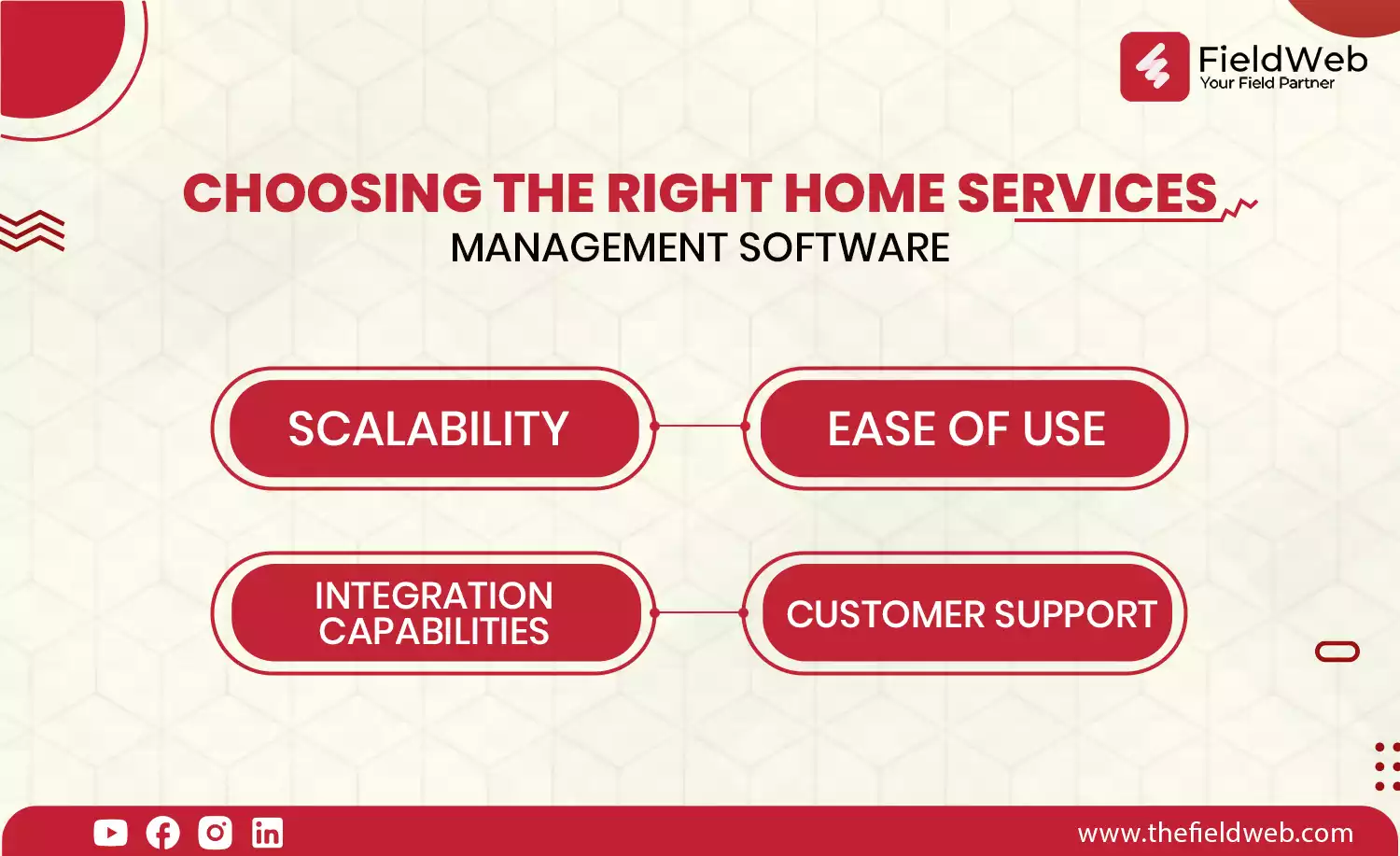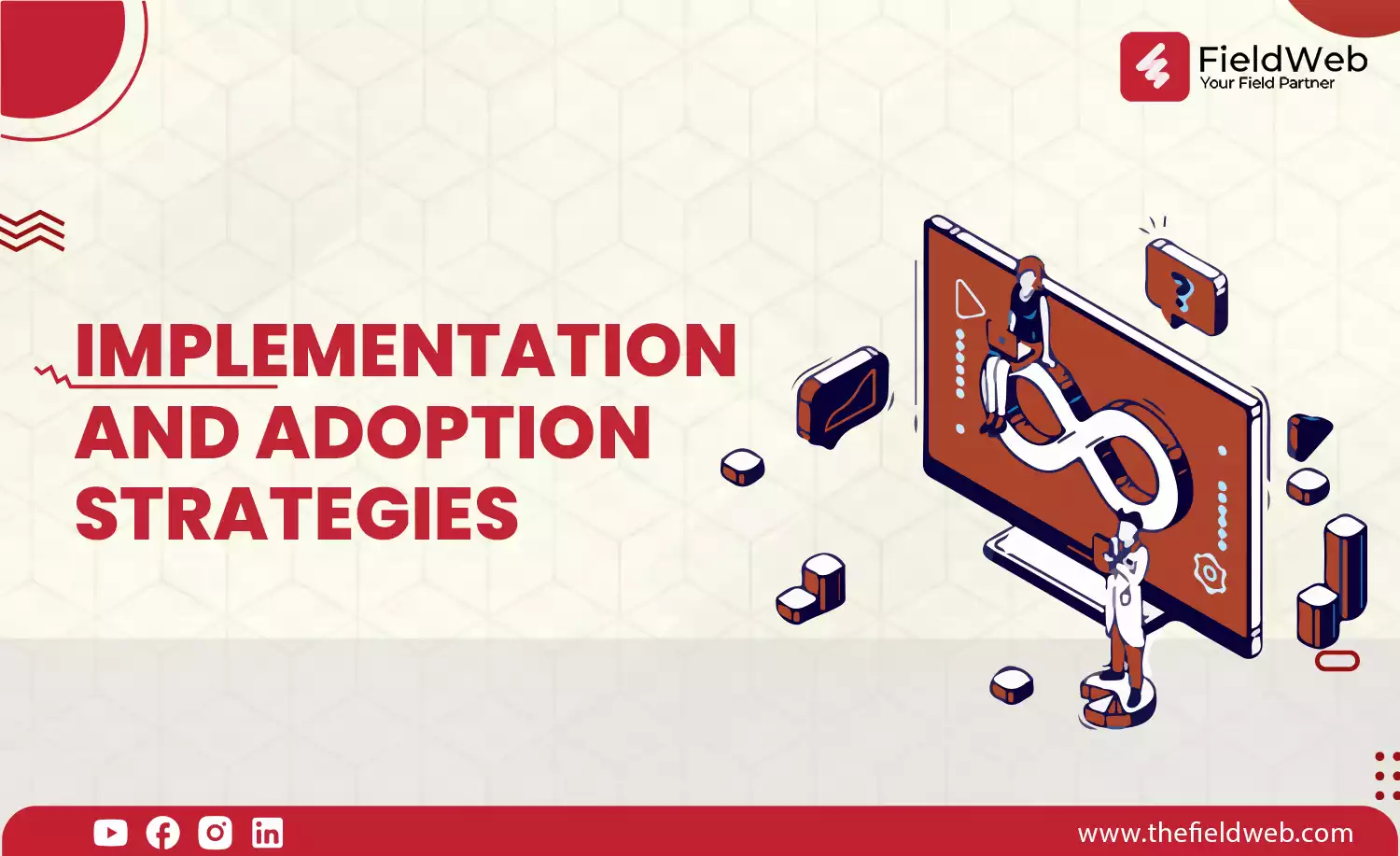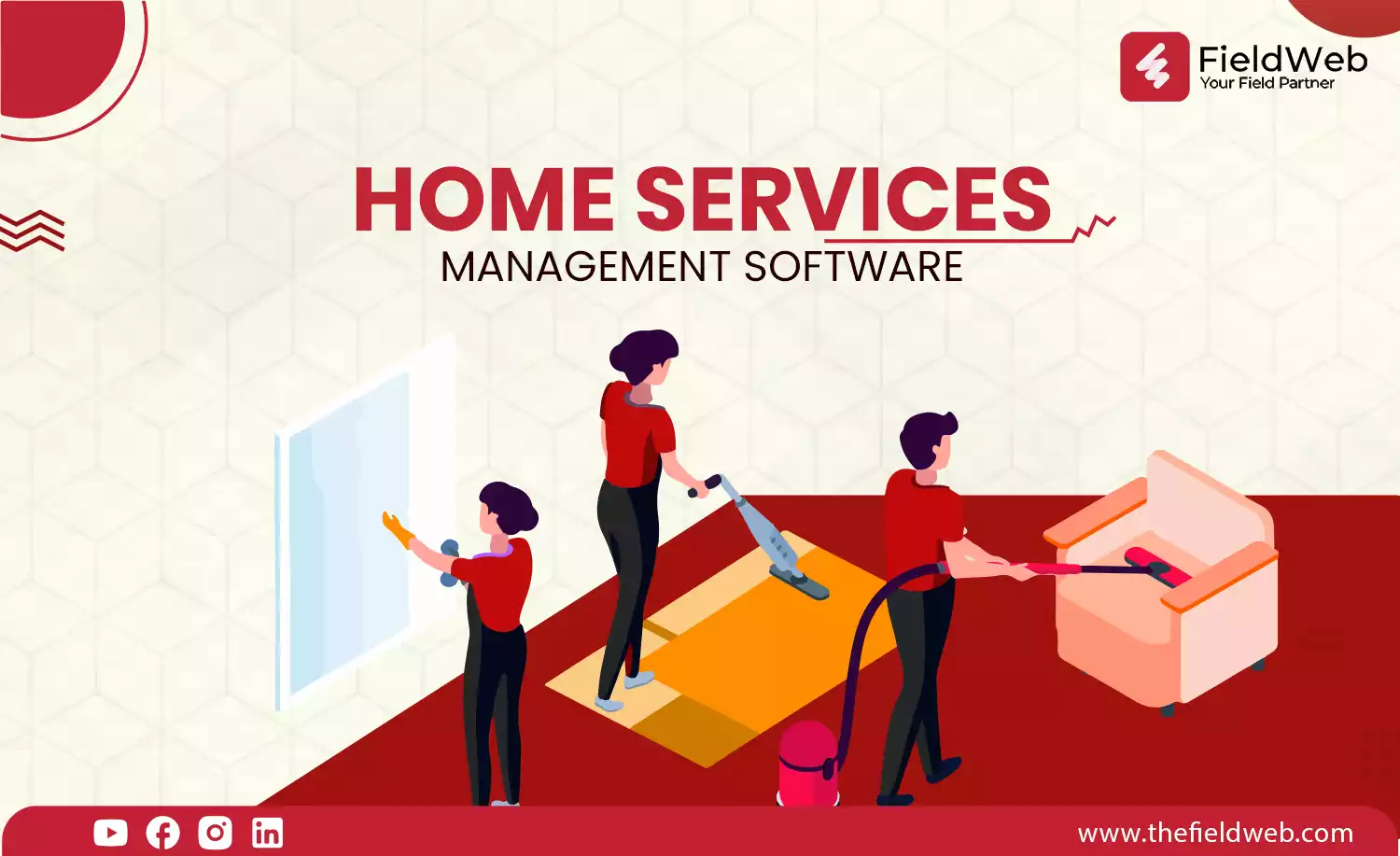
Home Services Management Software Business Guide
Introduction:
In today's dynamic world, the demand for home services continues to rise as home owners seek reliable professionals to maintain and enhance their living spaces. However, managing a home services business efficiently poses significant challenges, from scheduling and dispatching to invoicing and customer communication. In this ever-evolving landscape, home services management software emerges as a powerful solution, offering comprehensive tools to streamline operations and elevate customer satisfaction.
Challenges Faced by Home Service Businesses
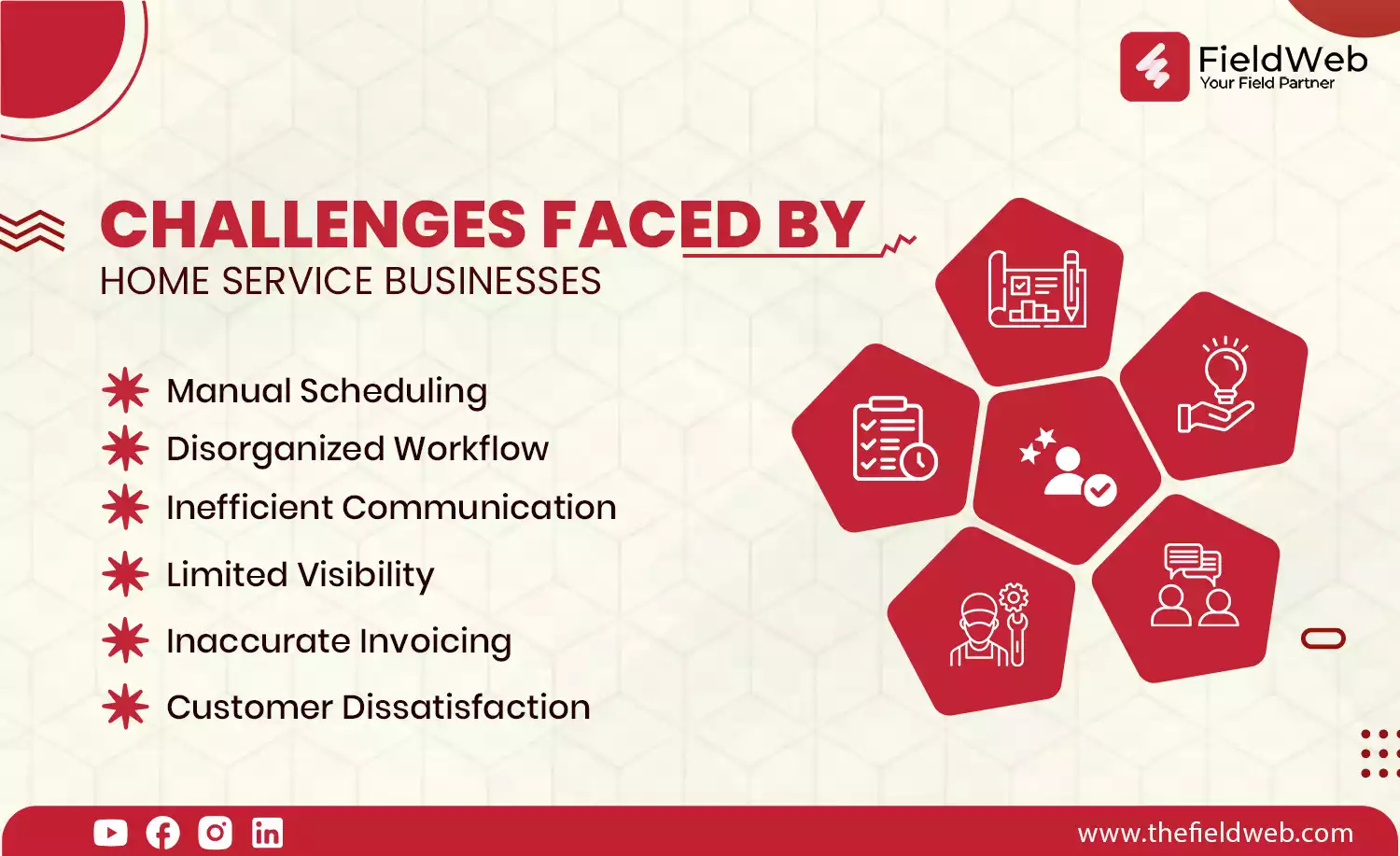
- Manual Scheduling: Without software, scheduling appointments and dispatching technicians is often a manual, time-consuming process. Coordinating availability, locations, and skill sets can be challenging, leading to scheduling conflicts and inefficiencies.
- Disorganized Workflow: Managing various tasks, such as job assignments, customer information, and invoicing, becomes disjointed and disorganized. Paper-based systems or spreadsheets may result in lost or outdated information, hindering productivity and customer service.
- Inefficient Communication: Communication between dispatchers, technicians, and customers relies heavily on phone calls, emails, or text messages. This fragmented communication can lead to miscommunication, delays in response times, and missed appointments.
- Limited Visibility: Without software, businesses lack real-time visibility into their operations. They may struggle to track job statuses, technician locations, and resource utilization, making it difficult to optimize workflow and allocate resources effectively.
- Inaccurate Invoicing: Generating and managing invoices manually increases the risk of errors and discrepancies. Invoices may be delayed, inaccurate, or missing altogether, leading to payment delays and customer dissatisfaction.
- Customer Dissatisfaction: Ultimately, these challenges culminate in poor customer experiences. Delays in scheduling missed appointments, and billing errors can erode trust and damage the reputation of the business. Unhappy customers are less likely to return and may share their negative experiences with others, further impacting the business's bottom line.
Addressing these challenges requires a comprehensive solution tailored to the unique needs of home service businesses. Home service management software offers a centralized platform to streamline scheduling, dispatching, invoicing, and communication. By automating routine tasks, providing real-time visibility, and enhancing customer interactions, the software enables businesses to overcome these challenges and deliver exceptional service that drives satisfaction and loyalty.
The Importance of Efficient Management in Home Services:
Efficient management is the cornerstone of success in the home services industry, serving as the bedrock upon which businesses thrive. Here's why it's so pivotal:
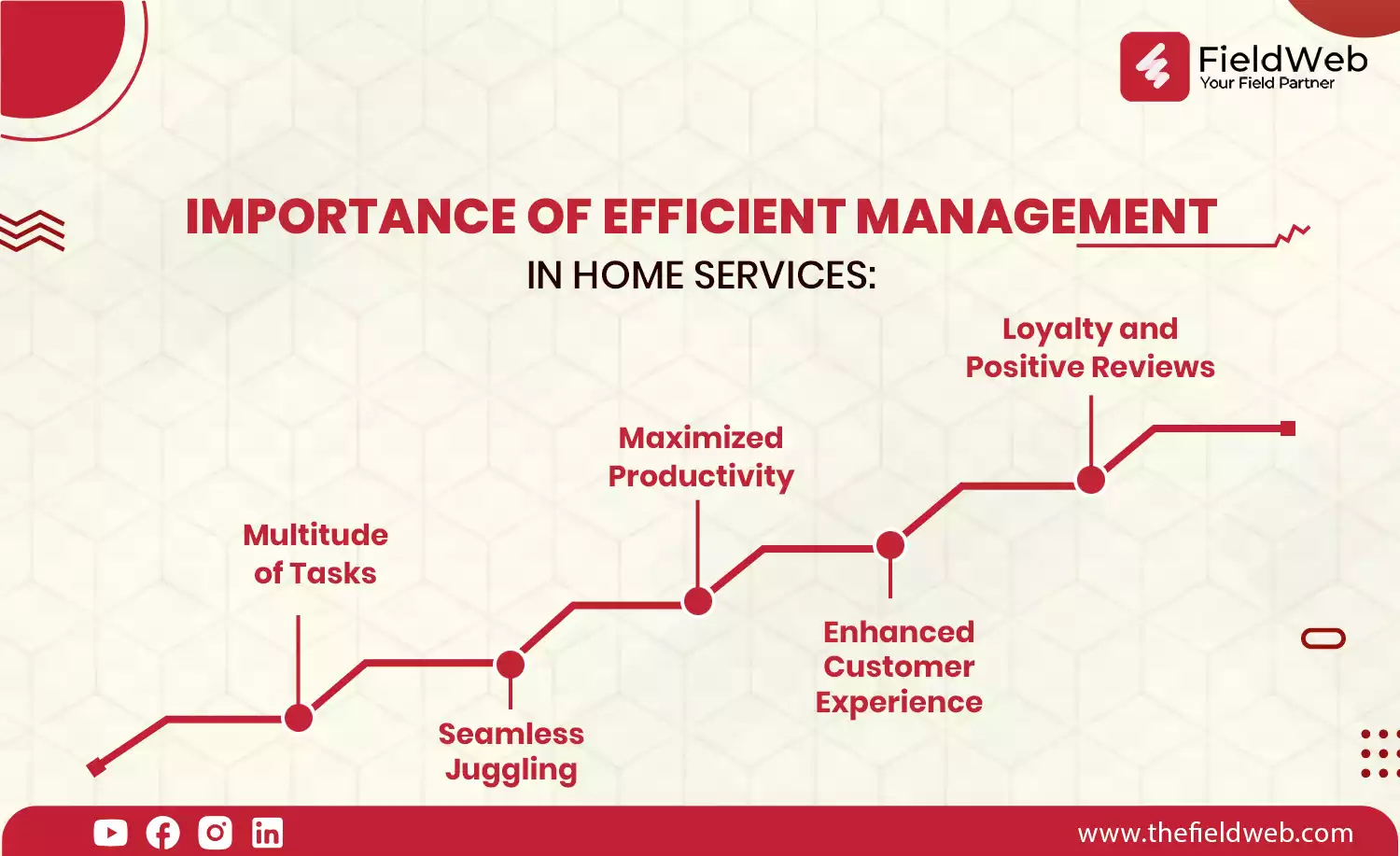
- Multitude of Tasks: Home service businesses face a myriad of tasks and responsibilities daily. From scheduling appointments to dispatching technicians, managing invoices, and interacting with customers, the workload can be overwhelming.
- Seamless Juggling: Effective management entails seamlessly juggling these tasks to ensure smooth operations. It requires a delicate balance of coordination, organization, and communication to keep everything running like a well-oiled machine.
- Maximized Productivity: When management is efficient, productivity soars. Tasks are completed promptly, resources are optimized, and downtime is minimized. This translates to greater output with fewer resources, ultimately driving profitability.
- Enhanced Customer Experience: Perhaps most importantly, efficient management enhances the overall customer experience. When appointments are scheduled promptly, technicians arrive on time, invoices are accurate, and interactions are courteous and professional, customers notice. They feel valued and respected, leading to increased loyalty and positive reviews.
- Loyalty and Positive Reviews: Satisfied customers are more likely to become repeat customers and recommend your services to others. Their loyalty fuels business growth and reputation, while positive reviews act as testimonials that attract new clients.
In essence, efficient management isn't just about getting things done—it's about doing them right. It's about delivering exceptional service that delights customers, fosters loyalty, and drives sustained success in the competitive home services industry.
Understanding Home Services Management Software:
Home services management software is a specialized tool designed to meet the unique needs of businesses in the home services sector. From single-person operations to large enterprises, this software provides a centralized platform to manage all aspects of the business, from scheduling appointments to processing payments.
Key Features of Home Services Management Software:
1. Scheduling and Dispatching:
Efficient scheduling and dispatching are essential for optimizing resource allocation and minimizing downtime. Home services management software offers intuitive tools to assign jobs to technicians based on factors like availability, location, and skill set. Real-time updates and notifications ensure technicians stay informed and punctual, enhancing overall efficiency.
2. Job Tracking and Management:
Keeping track of ongoing jobs is crucial for meeting deadlines and exceeding customer expectations. Home services management software enables businesses to monitor job progress in real time, from assignment to completion. Technicians can update job status, record notes, and capture photos directly through the mobile app, providing managers with valuable insights into workflow management.
3. Invoicing and Payment Processing:
Simplifying the invoicing and payment process is key to ensuring timely payments and maintaining cash flow. Home services management software automates invoicing, allowing businesses to generate professional-looking invoices with ease. Integration with payment gateways enables customers to make secure payments online, reducing administrative burdens and errors.
4. Customer Relationship Management (CRM):
Building strong relationships with customers is essential for long-term success. Home services management software includes CRM functionalities to store customer information, track interactions, and maintain communication channels. Personalized follow-ups, appointment reminders, and satisfaction surveys help businesses foster loyalty and drive repeat business.
5. Analytics and Reporting:
Data-driven insights are invaluable for making informed decisions and optimizing performance. Home services management software provides comprehensive analytics and reporting tools to track key metrics such as revenue, profitability, and customer satisfaction. By analyzing trends and identifying areas for improvement, businesses can enhance efficiency and drive growth.
Benefits of Implementing Home Services Management Software:
Implementing home services management software offers numerous benefits for businesses, including increased efficiency, improved customer satisfaction, and enhanced profitability. Real-world examples and case studies demonstrate the positive impact of the software on businesses of all sizes, from small-scale operations to large enterprises.
Choosing the Right Home Services Management Software:
Selecting the right software solution is paramount in harnessing the full potential of home services management software. Here are key factors to consider:
- Scalability: Ensure that the software can grow with your business. It should accommodate an increasing number of users, clients, and operations without compromising performance or functionality. Scalability ensures long-term viability and minimizes the need for frequent software upgrades.
- Ease of Use: Opt for a user-friendly interface that simplifies navigation and minimizes the learning curve for your team. Intuitive design and clear workflows enhance productivity and facilitate seamless adoption across your organization.
- Integration Capabilities: Look for software that seamlessly integrates with your existing tools and systems. Whether it's accounting software, CRM platforms, or payment gateways, compatibility is crucial for smooth data flow and efficient workflow management. Integration capabilities ensure streamlined operations and minimize data silos.
- Customer Support: Evaluate the level of customer support provided by the software vendor. Responsive customer support is essential for troubleshooting issues, resolving technical challenges, and maximizing uptime. Choose a vendor that offers comprehensive support options, including phone support, email assistance, and online resources.
By carefully evaluating these factors and choosing a software solution that aligns with your business needs, you can ensure a smooth implementation process and set the stage for long-term success. Investing time and resources upfront in selecting the right software pays dividends in enhanced efficiency, improved customer satisfaction, and sustainable growth.
Implementation and Adoption Strategies:
Successful implementation and adoption of home services management software require careful planning and execution. Best practices include providing comprehensive training for employees, promoting adoption through incentives and rewards, and actively seeking feedback to address any challenges or concerns. By fostering a culture of innovation and continuous improvement, businesses can maximize the software's effectiveness and drive lasting results.
Real-World Success Stories:
Real-world success stories vividly illustrate the transformative impact of home services management software:
- Clean Sweep Maintenance: A small family-owned cleaning business struggled with manual scheduling and invoicing processes.
- Implemented comprehensive management software.
- Resulted in a 30% increase in job completion rates.
- Notable reduction in administrative errors.
- Green Thumb Landscaping: Faced with the challenge of managing a dispersed workforce.
- Implemented software that centralized scheduling and communication.
- Achieved a 20% boost in the monthly revenue of the business.
- Significant decrease in response times to client inquiries.
These stories underscore how embracing technology can propel businesses to new heights of efficiency and customer satisfaction. They serve as inspiration for others in the home services industry to follow suit and thrive in today's competitive market.
Future Trends and Innovations in Home Services Management Software:
Looking ahead, the landscape of home services management software is poised for remarkable evolution:
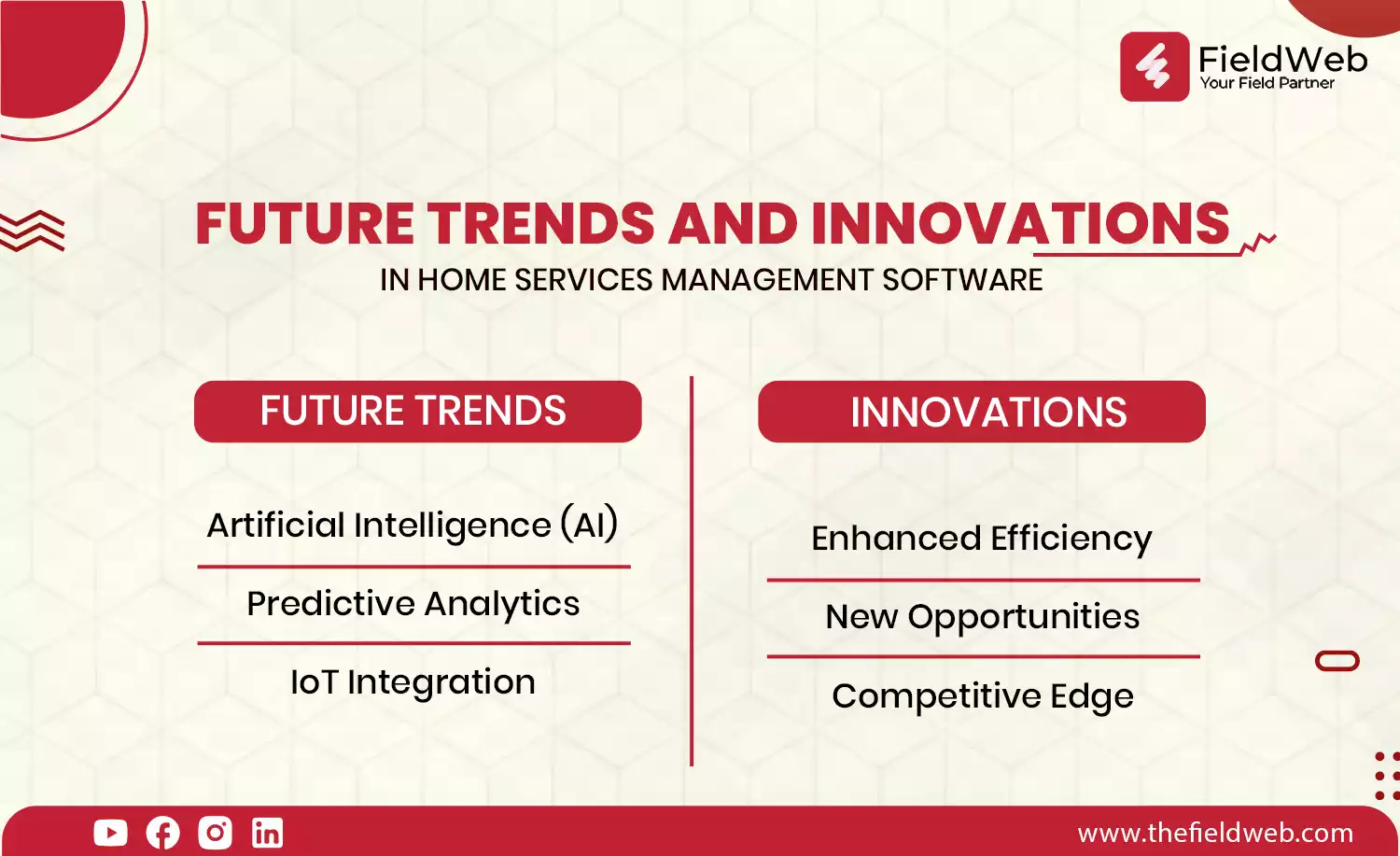
- Artificial Intelligence (AI): AI-powered algorithms are revolutionizing how businesses manage their operations. These systems can automate routine tasks, optimize scheduling and dispatching, and even predict maintenance needs based on historical data.
- Predictive Analytics: Leveraging vast amounts of data, predictive analytics algorithms can anticipate trends, identify potential issues before they arise, and suggest proactive solutions. This capability enables businesses to minimize downtime, reduce costs, and deliver more reliable services to customers.
- IoT Integration: The Internet of Things (IoT) is reshaping the way devices communicate and interact with each other. In the home services industry, IoT integration allows for real-time monitoring of equipment, remote diagnostics, and predictive maintenance. For example, smart sensors can alert technicians to potential issues with HVAC systems or plumbing fixtures before they lead to costly breakdowns.
These emerging trends and innovations hold immense promise for the future of home services management software:
- Enhanced Efficiency: By automating repetitive tasks and providing actionable insights, advanced technologies enable businesses to operate more efficiently than ever before.
- New Opportunities: The integration of AI, predictive analytics, and IoT opens up new avenues for service offerings and revenue streams. Businesses can offer predictive maintenance plans, remote monitoring services, and personalized recommendations to their customers.
- Competitive Edge: Staying abreast of technological advancements is essential for maintaining a competitive edge in the digital age. Businesses that embrace innovation and invest in cutting-edge software solutions will be better positioned to meet the evolving needs of their customers and outpace their competitors.
As technology continues to evolve, home services management software will evolve as well. Emerging trends and innovations, such as artificial intelligence, predictive analytics, and IoT integration, promise to further enhance efficiency and unlock new opportunities for businesses in the home services sector. By staying informed and embracing innovation, businesses can stay ahead of the curve and maintain a competitive edge in the digital age.
Conclusion
Home services management software is a transformative tool that empowers businesses to maximize efficiency and elevate customer satisfaction. By streamlining operations, improving communication, and harnessing the power of data, businesses can achieve greater success and drive growth in an increasingly competitive market. As the home services industry continues to evolve, investing in the right software solution is essential for staying ahead of the curve and building a thriving business for the future.



